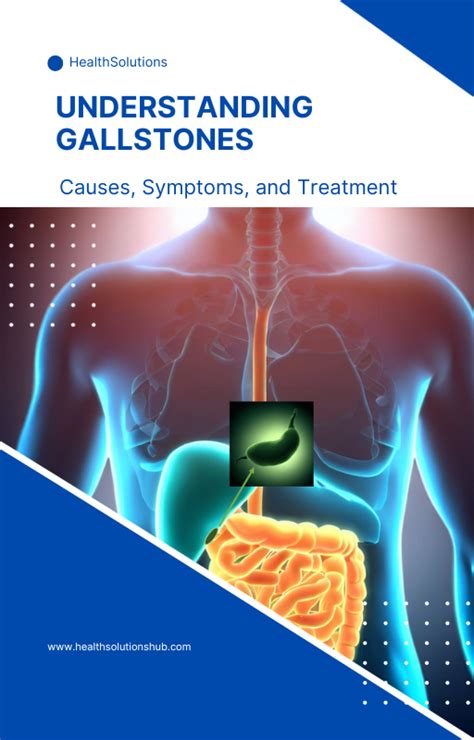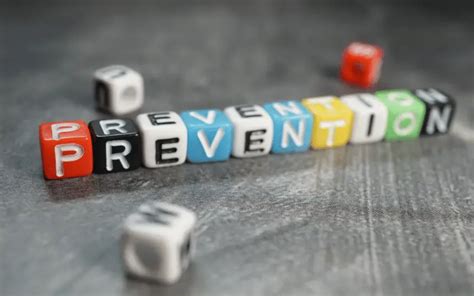Intro
Discover 5 effective ways to prevent gallstones, reducing risk of gallbladder disease, pancreatitis, and surgery through diet, exercise, and lifestyle changes, promoting digestive health and bile balance.
Gallstones are a common health issue that affects millions of people worldwide. These small, hard deposits can cause severe abdominal pain, nausea, and vomiting, and if left untreated, can lead to more serious complications. While gallstones can be treated with surgery or other medical interventions, preventing them from forming in the first place is always the best approach. In this article, we will explore the importance of preventing gallstones and provide valuable insights on how to reduce the risk of developing them.
Preventing gallstones requires a combination of lifestyle changes, dietary modifications, and awareness of the factors that contribute to their formation. By understanding the causes of gallstones and taking proactive steps to prevent them, individuals can significantly reduce their risk of developing this painful and potentially debilitating condition. Whether you have a family history of gallstones or are simply looking to maintain a healthy digestive system, this article will provide you with the information and guidance you need to take control of your health.
Gallstones are a significant health concern, and their prevention is crucial for maintaining overall well-being. By adopting a healthy lifestyle, eating a balanced diet, and being mindful of the factors that contribute to gallstone formation, individuals can reduce their risk of developing this condition. In the following sections, we will delve deeper into the world of gallstones, exploring their causes, symptoms, and prevention strategies. We will also examine the latest research and expert recommendations, providing readers with a comprehensive understanding of how to prevent gallstones and maintain a healthy digestive system.
Understanding Gallstones

Causes of Gallstones
The exact cause of gallstones is not always clear, but several factors can increase the risk of developing them. These include: * Family history: Individuals with a family history of gallstones are more likely to develop them. * Obesity: Being overweight or obese can increase the risk of gallstones. * Diet: A diet high in fat and cholesterol can contribute to gallstone formation. * Age: Gallstones are more common in people over the age of 40. * Gender: Women are more likely to develop gallstones than men.Prevention Strategies

Dietary Modifications
Dietary modifications can play a significant role in preventing gallstones. Here are some foods to include and avoid: * Foods to include: + Fruits and vegetables + Whole grains + Lean proteins + Low-fat dairy products * Foods to avoid: + High-fat foods + Fried foods + Processed meats + Sugary drinksLifestyle Changes

Supplements and Medications
Certain supplements and medications can also help prevent gallstones. Here are some options to consider: * Vitamin C: Vitamin C can help reduce the risk of gallstones by improving digestion and reducing inflammation. * Ursodiol: Ursodiol is a medication that can help dissolve small gallstones and prevent new ones from forming. * Cholesterol-lowering medications: Cholesterol-lowering medications can help reduce the risk of gallstones by lowering cholesterol levels in the blood.Conclusion and Next Steps

Final Thoughts
Gallstones can be a painful and debilitating condition, but preventing them is always the best approach. By taking proactive steps to reduce the risk of gallstone formation, individuals can maintain a healthy digestive system and avoid the discomfort and complications associated with gallstones. If you have any concerns about gallstones or are experiencing symptoms, be sure to consult with a healthcare professional for proper diagnosis and treatment.What are the symptoms of gallstones?
+The symptoms of gallstones can include severe abdominal pain, nausea, vomiting, and fever. In some cases, gallstones may not cause any symptoms at all.
How are gallstones diagnosed?
+Gallstones are typically diagnosed using imaging tests such as ultrasound, CT scans, or MRI. Blood tests may also be used to check for signs of infection or inflammation.
Can gallstones be prevented?
+Yes, gallstones can be prevented by maintaining a healthy weight, eating a balanced diet, staying hydrated, and avoiding crash diets. Regular exercise and stress management can also help reduce the risk of gallstone formation.
